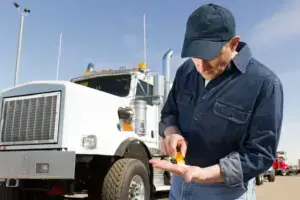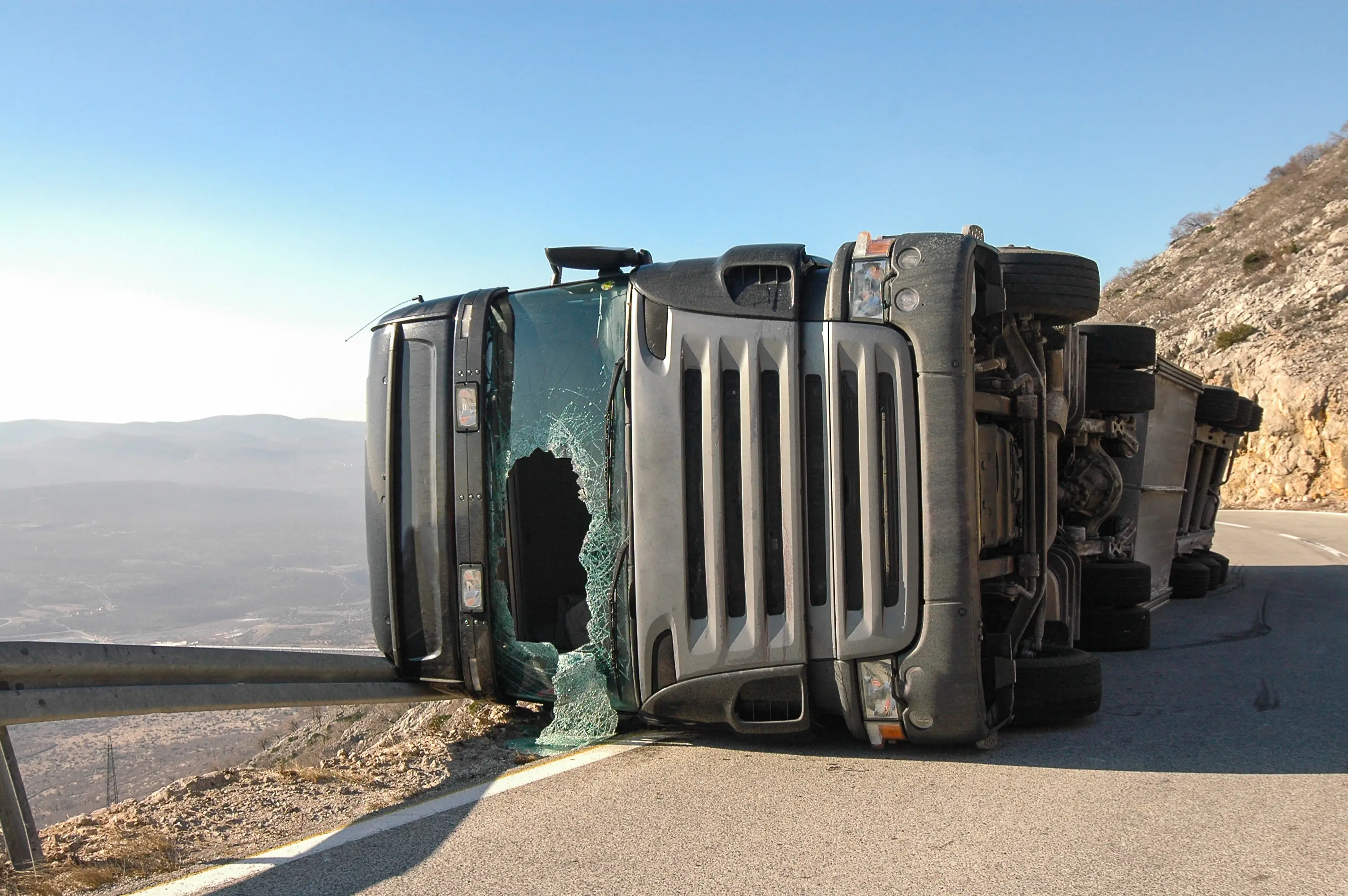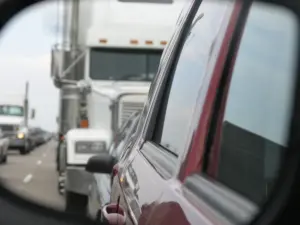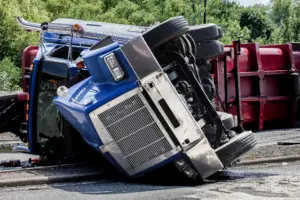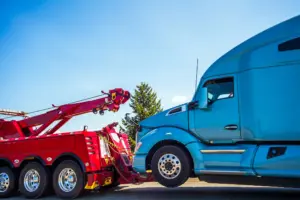Mismanaged semi-trucks pose a serious risk of accidents and injuries due to their large size and heavy weight. Crashes involving semis often result in significant property damage and financial loss. Because these cases may involve federal safety rules and commercial insurance policies, pursuing legal action can be complicated without legal guidance.
At West Coast Trial Lawyers, our truck accident lawyers can take a look at your situation, initiate a thorough investigation, establish fault, and pursue legal action against the responsible party. With over 20 years of experience in personal injury and more than $1.7 billion recovered in settlements, we are prepared to defend your rights and get you the justice and compensation you deserve.
We operate under a contingency-fee basis, meaning if your case is unsuccessful, you owe us nothing. To set up a FREE consultation, you can connect with us by calling (213) 927-3700 or filling out our quick online contact form.
What Is the Number One Cause of Semi-Truck Accidents?
The number one cause of semi-truck accidents is driver error. Within this classification, a variety of scenarios may unfold:
- Driver fatigue: Despite regulations enforcing rest periods, some truck drivers will still choose to fulfill work-related tasks while fatigued. This is dangerous, as drowsy driving can impair reaction times and decision-making abilities, thus increasing the risk of accidents.
- Speeding: Semi-trucks need enough time and distance to stop compared to a regular car because of its size and weight. So, when they are exceeding speed limits, they will not be able to react promptly to sudden changes made on the road. Legal consequences may be enforced, as well, if the semi is traveling at a speed greater than is reasonable or prudent, considering certain factors, such as weather, visibility, and road conditions (California Vehicle Code § 22350).
- Distracted driving: Distractions, like cell phones or other electronic devices, can remove a truck driver’s attention from the road, raising the probability of an accident. This action is prohibited under CVC §§ 23123 and 23123.5. All drivers should not operate a vehicle, no matter the size, while simultaneously using a handheld wireless telephone to read, write, or text. Only devices that are specifically designed to allow hands-free listening and talking are allowed, and should be used in that manner when driving.
- Driving while under the influence: It is prohibited for all drivers to operate a vehicle while under the influence (CVC § 23152(a)). Alcohol and drug impairment can severely affect a truck driver’s judgment and reaction times, putting themselves and others in danger. California law has set a restriction on alcohol intake, prohibiting drivers to have a blood alcohol concentration (BAC) of or above 0.08% (CVC § 23152(b)). Commercial drivers, on the other hand, cannot meet or exceed a BAC of 0.04% or more (CVC § 23152(d)).
- Poor vehicle maintenance: Improper inspections can contribute to worn brakes, faulty steering, or damaged tires. Given these factors, it can make it nearly impossible for a truck driver to control the vehicle safely. Engine or transmission failures can also leave a truck stranded in traffic, while unresponsive lights can lessen visibility, making it more difficult for others to anticipate what a truck driver is going to do. Even issues with cargo restraints or trailer components can cause shifting or falling loads, thus triggering the vehicle to make sudden swerves or get into a collision. Without regular maintenance checks, small issues can gradually escalate into devastating accidents.
How Many Accidents Are Caused by Semi-Trucks?
According to the National Safety Council (NSC), in 2023, 114,552 large trucks were involved in crashes resulting in injury, leading to a 4.7% decrease from 2022. Since 2016, the number of cases grew by 12%. The involvement rate per 100 million miles remained at 35. Additionally, 153,452 individuals were hurt in large truck crashes, down 4.4% from the previous year.
How Many Fatal Semi-Truck Accidents Are There Per Year?
Based on data collected by the NSC, a total of 5,375 large trucks were involved in fatal collisions, which is an 8.4% decrease compared to 2022, but a 43% increase when referring to cases from a decade ago. The fatal crash involvement rate per 100 million miles traveled declined 8% from 2022, however, it remains 22% greater than 10 years ago. Within the same year (2023), 5,472 people passed away as a result of a large truck accident, reflecting an 8% drop from 2022, but a 40% increase since 2013.
These cases revealed a pattern. More than half of them happened on rural roads, with about a quarter on interstates and 62% during daylight hours. Construction zones contributed to 5.2% of deaths. August and October were deemed the deadliest months for these types of accidents, with February having the least amount of reports.
How Many Types of Semi-Truck Accidents Are There?
Semi-truck accidents can take on many forms:
- Rear-end collisions can happen when a semi-truck crashes into the back of another vehicle. With its large size and power, such cases can involve catastrophic damage to smaller cars. Distracted driving and abrupt stops are some common factors that can trigger this type of collision.
- Jackknife accidents occur when a truck’s trailer swings out in the form of an “L” or “V” shape with the cab. Multiple lanes may be blocked as a result, creating dangerous conditions for not only the truck driver, but other road users, as well.
- Rollover accidents take place when a truck tips over onto its ride or roof. These are usually caused by sharp turns, speeding, or unbalanced cargo. Tankers or trucks that are transporting liquids are prone because of the shifting weight.
- Underride accidents happen when a small vehicle slides underneath a semi-truck, either at the rear or side. Such a collision can be very dangerous and fatal for passenger vehicle occupants. Safety features, like underride guards, have been established to reduce the severity of contact.
- Wide turn accidents result from sharp turns that cause the truck to swing into another lane. These cases are common at intersections and roundabouts.
- Head-on collisions are not as common as the rest, but when they do happen, it can contribute to intense damage due to the speed and weight of the two vehicles involved. This is expected to occur if a truck drifts into oncoming lanes or the truck driver is making unsafe passing maneuvers.
What to Do After a Semi-Truck Accident?
The aftermath of a semi-truck accident can be filled with high emotions. If possible, try to keep yourself calm and focus on fulfilling these tasks:
- Contact 911: If any injuries are present at the accident scene, you should call 911. Law enforcement will arrive shortly after and conduct a police report. Paramedics will also show up to provide medical care to the injured parties.
- Seek medical attention: You should get checked by a doctor shortly after the truck accident. Some injuries, including internal bleeding, may not be apparent soon after the incident. Medical records can also be used as proof if you plan on suing the at fault party.
- Document the accident scene: Try to take photos and videos of your injuries, damages, and surrounding conditions. Surveillance footage can also be used to provide visible proof of how the accident happened. These details are important when it comes to establishing fault.
- Collect information: Be sure to exchange contact, insurance, and vehicle information with all parties involved. Do not forget to also get names and phone numbers from witnesses.
- Consult with a truck accident lawyer: Semi-truck accidents may be more difficult to handle compared to a regular car crash since multiple parties can be held liable, including the truck driver, trucking company, cargo loaders, or even manufacturers. An experienced truck accident lawyer can investigate the matters tied to your case, collect evidence, identify the at fault parties, and negotiate on your behalf to ensure you are granted fair compensation for the losses you incurred.
How Common Are Semi-Truck Accidents?
Semi-truck accidents are a safety concern in the United States. According to data provided by the National Highway Traffic Safety Administration (NHTSA), 5,472 died and an estimated 153,452 were harmed in large truck accidents in 2023. The Insurance Institute for Highway Safety (IIHS), also reported that most deaths were occupants of other vehicles (65%), truck occupants (16%), and non-occupants, like pedestrians or cyclists (17%).
How Many Semis Crash a Year?
In 2023, large trucks accounted for 9% of all vehicles involved in fatal crashes and 5% of vehicles involved in injury or property damage-related cases. They represented 5% of all registered vehicles and 10% of total vehicle miles traveled (VMT). In comparison, passenger occupant vehicles, like cars, SUVs, and vans, made up about 92% of registered vehicles and 89% of total VMT (NHTSA). This information emphasizes that while large trucks are not as significant when it comes to vehicle population, they are involved in more deadly collisions than you would expect based on the number of large vehicles on the road.
What’s the Difference Between a Semi Accident and a Regular Truck Accident?
The difference between a semi-truck accident and a regular truck accident comes down to certain factors. A semi-truck accident involves an 18-wheeler. These trucks weigh about 20 to 30 times more than a standard vehicle, and are made with the intent to transport cargo across long routes. Certain factors, like the truck’s size, lengthy stopping distance, wide turns, and potential for jackknifing or rollovers, can make the outcome of a collision much more severe. Liability is also difficult since various parties can be involved
A regular truck accident generally covers collisions involving smaller trucks (pickup truck or delivery vehicle). While these can still result in serious damage, it tends to be easier to maneuver or less likely to cause catastrophic outcomes compared to semis. Liability may stop at the employer-driver relationship rather than the multiple layers within the trucking industry.
Who Is Liable for a Semi-Truck Accident?
Liability in a semi-truck accident can be difficult due to the number of parties involved. Determining the responsible person or entity will depend on the cause of the collision, the truck’s operations, and the level of negligence involved. Below is a breakdown of some potential defendants in a truck accident case:
- Truck driver: Performing negligent behavior on the road, like speeding, distracted driving, or violating hours-of-service regulations, can lead to legal consequences.
- Trucking company: Employers may be met with legal repercussions under respondeat superior, which holds companies accountable for the negligent acts performed by workers within the scope of their employment. Trucking companies may also face punishment if they failed to properly train the driver, allowed overtime that caused fatigue, or ignored maintenance requirements.
- Cargo loaders: If the cargo is improperly secured, it can cause the semi-truck to tip or spill. The company responsible for loading may share liability (shipping companies or third-party logistics providers).
- Vehicle manufacturer: In certain cases, a defective vehicle part, like a faulty brake or tire blowout, can make the truck unsafe to operate. If this particular factor contributed to the accident, the manufacturer may be held liable.
Since California follows pure comparative negligence law, fault can be shared. So, if damages totaled to $150,000 and you were 30% at fault, you may be awarded an estimate of $105,000.
To learn what you could be entitled to, you can use our personal injury settlement calculator by inputting the losses you suffered due to the semi-truck accident.
How Much Can You Get From Getting Hit by a Semi-Truck?
The compensation you receive after getting hit by a semi-truck will vary depending on numerous factors:
- The extent of your injury
- Percentage of fault
- Current and future medical bills
- Lost wages and earning capacity
- The level of property damage involved
Minor injuries that involve limited medical treatment could be anywhere from $10,000 to $50,000 whereas serious injuries, like traumatic brain injuries or spinal cord injuries, can reach hundreds of thousands to several million dollars. Each case will have unique factors that will result in different amounts for affected individuals.
In California, economic and non-economic damages may be awarded in personal injury cases. Economic damages are financial expenses you suffered as a result of the impact, including medical expenses, lost income, and property damage. Non-economic damages are intangible losses that are difficult to measure in monetary terms, such as loss of enjoyment of life, emotional distress, and pain and suffering.
Punitive damages are not commonly given in personal injury cases. However, it can apply in cases where gross negligence or intentional misconduct occurs. For instance, driving under the influence or knowingly using a poorly maintained semi-truck. Punitive damages are meant to punish the wrongdoer and prevent similar conduct from occurring in the future. These are separate from economic and non-economic damages.
Involved in a Semi-Truck Accident? Schedule a FREE Consultation with WCTL Today
Semi-truck accidents can result in life-altering consequences, from serious injuries to financial and emotional stress. Navigating your way through the legal system while addressing these challenges can be overwhelming, but you do not have to deal with this all on your own.
At West Coast Trial Lawyers, our truck accident attorneys know the legal complications involved with such cases, including federal regulations, insurance negotiations, and liability issues. Our team of excellent lawyers are committed to thoroughly investigate matters pertaining to the collision, advocate on your behalf, and obtain the compensation you deserve for the losses you incurred. Let us represent you so you can focus on your recovery with a peace of mind.
To set up a FREE consultation, you can reach out to us by calling (213) 927-3700 or completing our quick online contact form.

